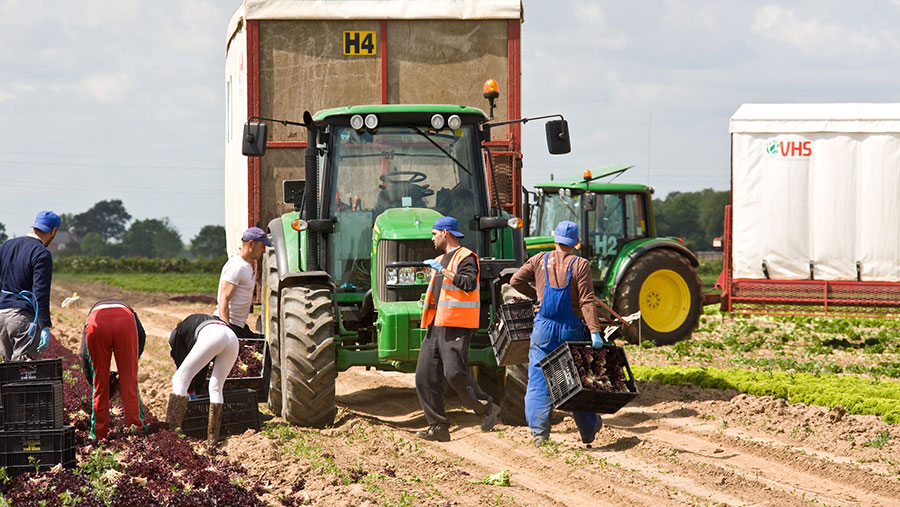Government immigration plans risk ‘huge disruption’ to farms
 © Tim Scrivener
© Tim Scrivener Government proposals for a new 12-month visa system for “low-skilled” workers risks huge disruption for UK farm businesses, warn farm leaders.
The idea is included in a government White Paper, The UK’s future skills-based immigration system, as part of plans to introduce a new single immigration system, ending free movement.
The consultation also sets out plans for a £30,000/year minimum salary threshold for skilled EU migrant workers seeking five-year visas before being allowed to work in the UK.
See also: 10-point plan for attracting the best farmworkers
The NFU said it was concerned the plans would add further difficulties to farm businesses struggling to recruit and retain staff since the UK voted to leave the EU.
NFU president Minette Batters said: “The proposed 12-month visa system for ‘low-skilled’ workers would also be highly disruptive to many businesses.
“As currently proposed, it would cause massive problems for businesses which employ non-UK workers on a permanent basis and we urge government to recognise the need for continued access to this workforce.”
Tim Breitmeyer, who farms in Cambridgeshire and is also president of the CLA, said a secure and sufficient supply of migrant labour is vital to rural businesses once the UK leaves the EU to boost growth and productivity.
He added: “Highly skilled workers from the EU are major contributors to the rural economy and it is right they should continue to have access to the UK market.
“However, imposing an arbitrary minimum salary threshold puts at risk a variety of jobs across the agri-food sector, including some which require specialist skills. These are vital roles which are critical to the success of the rural economy but have traditionally not attracted interest from UK nationals seeking work.”
Plans risk ‘wiping out’ vets
The British Veterinary Association (BVA) warned a £30,000 threshold for EU workers could lead to a “near-total wipeout” of veterinary surgeons in critical public health roles in UK slaughterhouses, with devastating consequences for UK trade.
About 95% of official veterinarians (OVs) working in UK abattoirs are from overseas, predominantly the EU.
But starting salaries for OVs monitoring standards, food safety and animal health and welfare in abattoirs are in the mid-£20,000s, meaning imposing this threshold following consultation could jeopardise the capacity of this vital and specialist section of the workforce.
The government says its new immigration and borders system will be implemented in a “phased” approach from 2021.
In September, Defra and the Home Office announced a two-year pilot to recruit 2,500 non-EU migrant workers to UK farms for up to six months. The pilot will start in spring 2019 and run until the end of December 2020.
